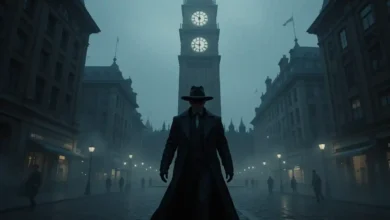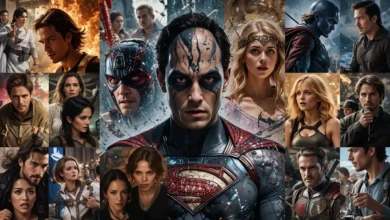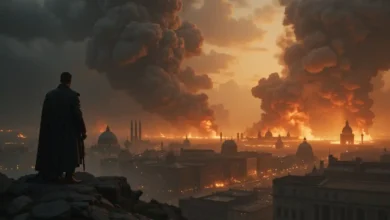What is a Canon Event? Exploring its Meaning and Significance

In the vast world of storytelling, certain terms emerge that capture the essence of narratives and their structures. One such term that has gained prominence is the “canon event.” Whether you are a fan of comic books, television series, or movie franchises, understanding what constitutes a canon event can enhance your appreciation of the stories you love. This blog post will delve into the meaning, origins, and implications of canon events, exploring their role in various media and their impact on fans and creators alike.
What is a Canon Event?
A canon event refers to a significant occurrence within a fictional universe that is officially accepted as part of the primary storyline. This event is considered essential and unchangeable, forming the backbone of the narrative. In many franchises, canon events are pivotal moments that shape characters’ destinies and influence the direction of the plot. They are distinguished from non-canon or alternate universe events, which may exist in parallel but do not impact the main storyline.
The Origin of the Term
The term “canon” has its roots in the ecclesiastical context, referring to a set of texts or rules that are accepted as authoritative and authentic. In literature and media, this concept was adopted to distinguish official storylines from fan fiction, alternate realities, or speculative scenarios. The idea of a canon event emerged as a way to identify key moments within these official storylines that are crucial to the integrity and continuity of the fictional universe.
Importance of Canon Events in Storytelling
Canon events serve several critical functions in storytelling. Firstly, they provide a framework for consistency, ensuring that the narrative remains cohesive over time. By establishing certain events as immutable, writers can create complex, interwoven plots that retain their internal logic. Secondly, canon events often highlight the thematic core of a story, illustrating fundamental truths or moral lessons that resonate with audiences. Finally, they offer a touchstone for fan communities, fostering shared understanding and discussion.
Examples of Canon Events in Popular Media
Canon events can be found across various forms of media, from literature to film to video games. Here are a few notable examples:
- Harry Potter Series: The Battle of Hogwarts is a quintessential canon event. This climactic battle shapes the destinies of many characters and resolves numerous plot threads, making it a cornerstone of the series’ narrative.
- Star Wars Franchise: The destruction of the Death Star in “A New Hope” is a pivotal canon event. It signifies the Rebel Alliance’s first major victory against the Empire and sets the stage for subsequent conflicts.
- Marvel Cinematic Universe (MCU): The snap by Thanos in “Avengers: Infinity War” is a dramatic canon event. It drastically alters the universe, leading to significant developments in “Avengers: Endgame.”
- The Lord of the Rings: The destruction of the One Ring in Mount Doom is a critical canon event. This act brings about the downfall of Sauron and the end of his reign of terror.
The Role of Canon Events in Fan Communities
Canon events play a significant role in shaping fan communities. They provide common ground for discussion, analysis, and interpretation. Fans often engage in debates about the implications of these events, theorizing about alternate outcomes or exploring their impact on the broader narrative. Canon events also inspire fan art, fan fiction, and other creative expressions, contributing to the rich tapestry of fan culture.
Canon Events vs. Non-Canon Events
Understanding the distinction between canon and non-canon events is essential for appreciating the integrity of a storyline. Non-canon events, such as those found in spin-offs, alternate universes, or fan-created content, offer alternative perspectives but do not alter the primary narrative. While they can be entertaining and thought-provoking, they exist outside the official storyline and are not recognized as part of the main canon.
The Impact of Canon Events on Character Development
Canon events often serve as turning points in character development. They can signify moments of growth, loss, or transformation, driving characters to evolve in response to their experiences. For example, the death of Uncle Ben in Spider-Man’s origin story is a crucial canon event that shapes Peter Parker’s motivations and sense of responsibility. Similarly, the Red Wedding in “Game of Thrones” has profound implications for the surviving characters, influencing their actions and decisions in subsequent episodes.
Canon Events and Continuity
Maintaining continuity is a key challenge for long-running series and franchises. Canon events help ensure that the storyline remains consistent and logical over time. They provide anchors around which writers can build new plots and subplots, maintaining the integrity of the fictional universe. However, managing continuity can also lead to creative challenges, as writers must navigate the constraints imposed by established canon while introducing fresh and engaging narratives.
Conclusion
Canon events are fundamental to the structure and coherence of fictional universes. They represent pivotal moments that define the narrative, shape character development, and foster engagement within fan communities. By understanding the significance of canon events, fans and creators alike can appreciate the intricate craftsmanship that goes into building compelling and enduring stories.
FAQs
1. What is the difference between a canon event and a non-canon event?
A canon event is an officially recognized occurrence within the primary storyline of a fictional universe, while a non-canon event exists outside the main narrative, often in alternate universes or fan-created content.
2. Can canon events change over time?
Generally, canon events are considered immutable. However, reboots, retcons, and new interpretations can sometimes alter or reinterpret established canon.
3. Why are canon events important in storytelling?
Canon events provide a framework for consistency and continuity, ensuring that the narrative remains cohesive and logical over time. They also highlight thematic core elements and drive character development.
4. How do canon events influence fan communities?
Canon events offer common ground for discussion and analysis, inspiring fan theories, creative expressions, and engagement with the story.
5. Can fan fiction include canon events?
Yes, fan fiction often incorporates canon events to explore alternative outcomes or provide new perspectives on the official storyline, even though these works are not considered part of the main canon.





